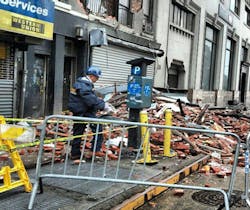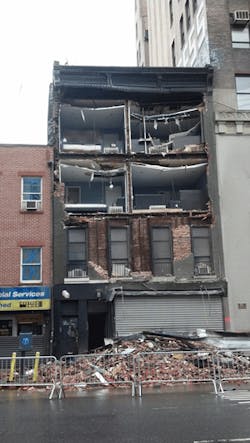The Federal Emergency Management Agency announced that President Barack Obama has signed emergency declarations for New York, New Jersey, West Virginia, Virginia, Rhode Island, Delaware, Pennsylvania and Connecticut and ordered federal aid to supplement state and local recovery efforts in the area affected by Hurricane Sandy beginning on Oct. 27 and continuing. Many states have been declared federal disaster areas.
Although the worst of the storm has passed in many areas, conditions remain treacherous due to flooding, downed power lines, unstable buildings, fires and power outages, and for many, the danger has not passed.
“The most important message that I have for the public right now is, please listen to what your state and local officials are saying,” said President Obama. “When they tell you to evacuate, you need to evacuate. Do not delay. Don’t pause; don’t question the instructions that are being given, because this is a serious storm and it could potentially have fatal consequence if people haven’t acted quickly."
In the immediate aftermath of the hurricane, the office of New York Governor Andrew M. Cuomo offered these tips to remain safe as we recover from Hurricane Sandy.
- If you have become separated from your family, use your family communications plan or contact FEMA or the American Red Cross.
- If you evacuated, return home only when officials say it is safe.
- If you cannot return home and have immediate housing needs. Text SHELTER + your ZIP code to 43362 (4FEMA) to find the nearest shelter in your area (example: shelter 12345).
- For those who have longer-term housing needs, FEMA offers several types of assistance, including services and grants to help people repair their homes and find replacement housing. Apply for assistance or search for information about housing rental resources.
- Drive only if necessary and avoid flooded roads and washed-out bridges. Stay off the streets. If you must go out watch for fallen objects; downed electrical wires; and weakened walls, bridges, roads and sidewalks.
- Keep away from loose or dangling power lines and report them immediately to the power company.
- Walk carefully around the outside your home and check for loose power lines, gas leaks and structural damage before entering.
- Stay out of any building if you smell gas, floodwaters remain around the building or your home was damaged by fire and the authorities have not declared it safe.
- Inspect your home for damage. Take pictures of damage, both of the building and its contents, for insurance purposes. If you have any doubts about safety, have your residence inspected by a qualified building inspector or structural engineer before entering.
- Use battery-powered flashlights in the dark. Do NOT use candles. Note: The flashlight should be turned on outside before entering – the battery may produce a spark that could ignite leaking gas, if present.
- Watch your pets closely and keep them under your direct control. Watch out for wild animals, especially poisonous snakes. Use a stick to poke through debris.
- Avoid drinking or preparing food with tap water until you are sure it’s not contaminated.
- Check refrigerated food for spoilage. If in doubt, throw it out.
- Wear protective clothing and be cautious when cleaning up to avoid injury.
- Use the telephone only for emergency calls.
- NEVER use a generator inside homes, garages, crawlspaces, sheds or similar areas, even when using fans or opening doors and windows for ventilation. Deadly levels of carbon monoxide can quickly build up in these areas and can linger for hours, even after the generator has shut off.
About the Author

Sandy Smith
Sandy Smith is the former content director of EHS Today, and is currently the EHSQ content & community lead at Intelex Technologies Inc. She has written about occupational safety and health and environmental issues since 1990.

